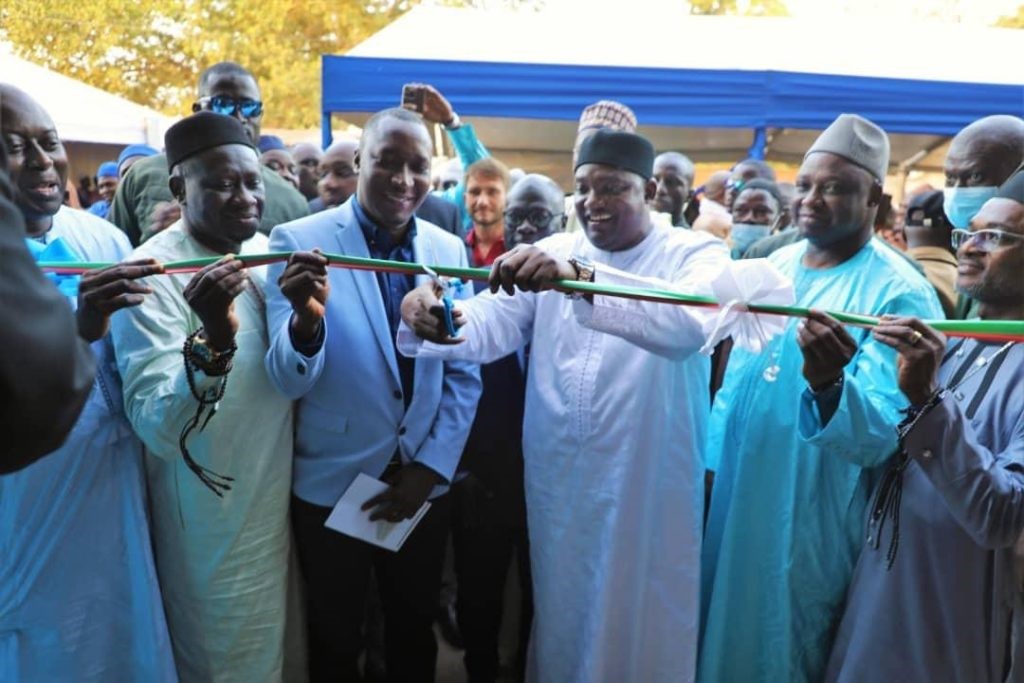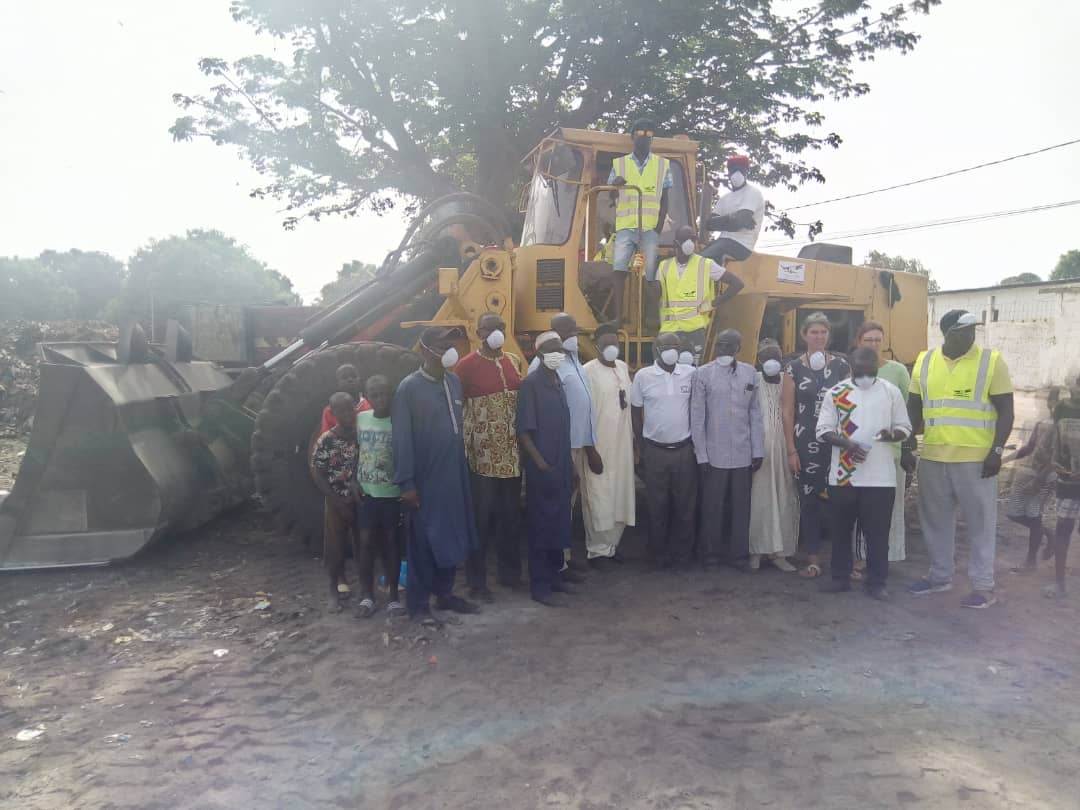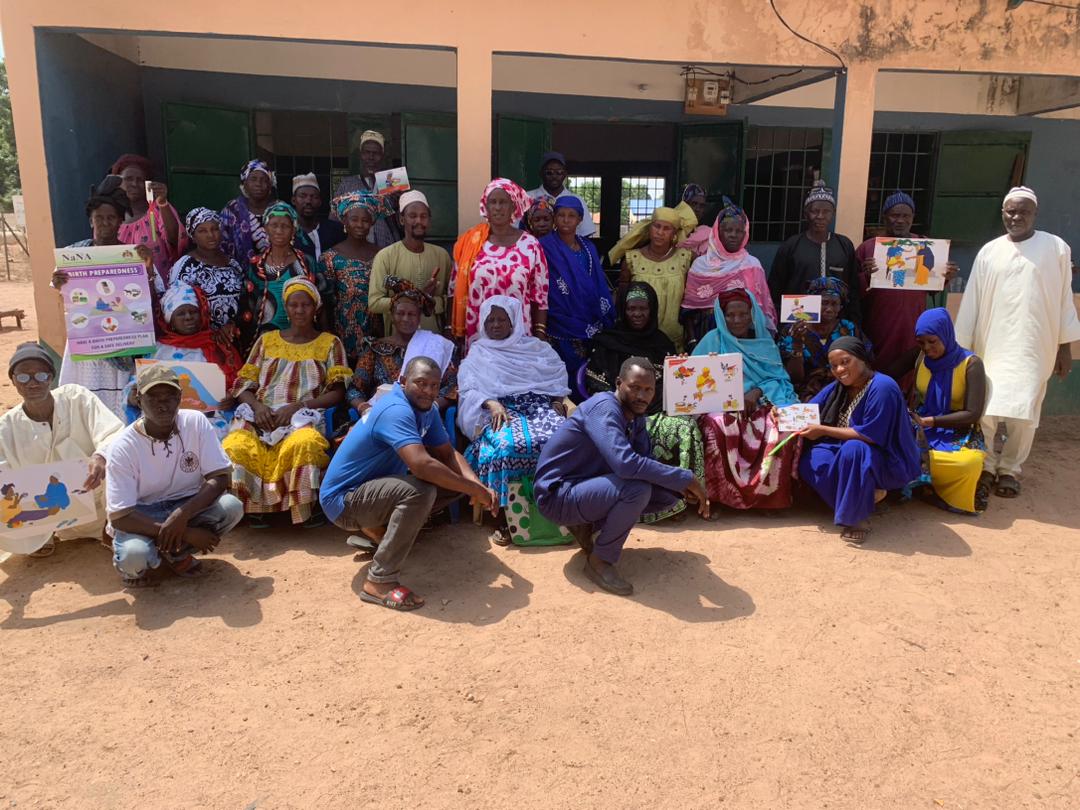The Never Again Network in expansion of its right to know campaign had its first tertiary students’ engagement on Wednesday 17 May 2023 with members of the University of the Gambia History Society. This engagement took place at the university’s Brikama campus and was attended by other UTG students. The Network was represented by Mr. Abdoulie Fatty, the Deputy National Coordinator of the network and Mr. Bubacarr Sambou, the National Outreach Coordinator.
Welcoming the Never Again Network team, the Outgoing President of the History Society expressed delight having the network answering to their call. He emphasised that university students, particularly history students, have a great responsibility in enlightening the public about the realities of the past while committing them to a better future. He said that the reason why History students decided to facilitate this engagement with the Never Again Network is to build a strong partnership in order to amplify the great messages of the network to enlighten not only university students but the entire nation. He urged students to listen attentively and be ready to pass the message forward.
Addressing the students, NAN National Outreach Coordinator Bubacarr Sambou explained to them the rationale for the Never Again Network. According to him, the idea was conceived by some former staff of the TRRC who believed that the campaign to ensure Never Again must go beyond the work of the TRRC. They believe the concept should be institutionalised to serve as a catalyst in committing Gambians to stand against all forms of human rights violation and abuses. Mr. Sambou reminded the UTG students that “if we really regret all the atrocious things that happened here that warranted the creation of the TRRC, then we must all be ready to address it by ensuring non-recurrence.” He further emphasised that Gambians must not be silent or afraid again, whenever they see wrongs happening, but they should rather stand up against it with all their might. As university students, Mr. Sambou urged them to serve as voices for thousands of other youths who are not able to attain university education.
On his part, NAN Deputy National Coordinator Abdoulie Fatty spoke to the students about the role of citizens in ensuring Never Again. He started by taking the students through the history of how the change of government in 1994 by military came about, how that change has contributed to destroying the fabric of the Gambia’s good governance, rule of law and the social cohesion that use to exist among citizens. He spoke on how as citizens we contributed to enabling dictatorship by being too afraid to speak or minding our business when something did not affect us directly. He also spoke about how as citizens we allowed the dictatorship to use us and succeed in making us believe we are different in terms of tribe, religion, region etc.
Mr. Fatty continued telling the students that the purpose of knowing what happened in the past is to help you to understand how to use today to fix the wrongs and make the good ones better. As university history students, Fatty reminded them, they all have both individual and collective responsibilities to be interested in everything happening around them. They must show interest in national as well as societal issues. He reminded the students about how happy and enthusiastic everyone was when we voted a dictator out in 2026. But there were also a lot of expectations that we will now no longer see one another as people from different tribes but as Gambians. Unfortunately, after seven years already, it seems nothing has changed and institutions are proving to be as dysfunctional as they have been before the change. Fatty reminded the students that they have a privilege that will place them above most people in their communities who have not got university education. “Knowledge, they say, is power, and since you people are acquiring this knowledge from a higher institution, it is important to note that how you exercise this power of knowledge matters a lot. If you abuse or disregard this power, then the power is meaningless. Since you all come from societies, families and regions, you all have individual social, moral and political responsibilities to use this power reasonably for the betterment of the society.”
Fatty urge the students to use the power that they are acquiring through knowledge-sharing, considering some of them might be in village, ward or regional communities. They must therefore play their parts in enlightening those communities about our individual and collective responsibilities to make sure we preach the message of tolerance and respect for each other. Like all citizens, university students have the responsibility to dismantle the foundations of tribalism in all its forms. Gambians have for long coexisted in diversity regardless of background and lived happily together with no problems. This must be jealously protected.
Mr. Fatty concluded by encouraging the students to play their part in making sure that what happened here with respect to human rights abuses and violations never happens here again. “We must all promote and stand in defence of the rule of law, and respect the fundamental rights of everyone.” He urged them to use their education and the skills acquired to make The Gambia a better country where people live in peace and harmony with respect for all.
The event ended with an interactive question and answer session as students asked questions relevant to the never again campaign.





